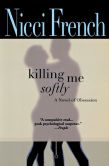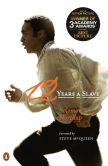 In 12 Years a Slave Solomon Northup, a free Black man living
in the north, recounts his experience of being kidnapped and sold into slavery. For twelve years he witnessed and suffered
the indignities and brutality of slavery, until one day one of his pleas for
help made it to the right person. He was
then rescued and reunited with his family.
It is a compelling and disturbing read. That it was from the victim’s point
of view (as opposed to a third party observer) made it more so.
In 12 Years a Slave Solomon Northup, a free Black man living
in the north, recounts his experience of being kidnapped and sold into slavery. For twelve years he witnessed and suffered
the indignities and brutality of slavery, until one day one of his pleas for
help made it to the right person. He was
then rescued and reunited with his family.
It is a compelling and disturbing read. That it was from the victim’s point
of view (as opposed to a third party observer) made it more so.
In addition to being an account of slavery, it is an account
of hope even in the most dire of circumstances.
During his twelve years of captivity, Solomon survived as best he could
and somehow, did not lose hope. He never
forgets his family and keeps thinking of ways to get back to them. Somehow Solomon’s experience doesn’t make him
bitter or mean.
I read this book in anticipation of seeing the movie of the
same name. After reading it, I’m not
sure I can watch the movie. It paints a
vivid picture of slavery and I’m not sure I can sit through images of people
being whipped and otherwise brutally treated. Speaking of the movie, I recently listened to an interview with Steve McQueen (writer and director of the movie by the same name) stated that his goal in making this film was to get book on school curriculums. I hope he succeeds. I'd put this on the same level as The Diary of Anne Frank. Both books put a face on and give a voice to history, reminding us that real people suffered.
One last thought – I read the Penguin Books edition of this
book. It includes an introduction by
Henry Louis Gates, Jr. titled, What Is an African- American Classic? I usually skim, if not skip all together,
introductions but this one is well worth the read.
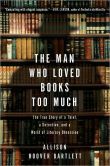
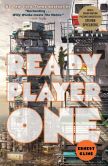
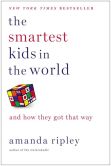 In The Smartest Kids in the World and How They Got That Way, Amanda Ripley looks at education through the lens of PISA (Programme for International Student Assessment) which is a test administered around the world to test the math, science, and reading skills of 15-year-olds. In general, student scores indicate that teenagers in Finland, South Korea, and Poland are learning and mastering the skills needed to solve problems and make complex arguments, skills that are increasingly important in the modern economy. In contrast, the scores of American students seem to indicate that teenagers in the United States are not learning or mastering these skills, at least not as well. In an attempt to figure out why or at least how education differed among these four countries, Ripley followed three American students who spent a year abroad in Finland, South Korea, and Poland. She also talked to educators, parents, and a host of other people.
In The Smartest Kids in the World and How They Got That Way, Amanda Ripley looks at education through the lens of PISA (Programme for International Student Assessment) which is a test administered around the world to test the math, science, and reading skills of 15-year-olds. In general, student scores indicate that teenagers in Finland, South Korea, and Poland are learning and mastering the skills needed to solve problems and make complex arguments, skills that are increasingly important in the modern economy. In contrast, the scores of American students seem to indicate that teenagers in the United States are not learning or mastering these skills, at least not as well. In an attempt to figure out why or at least how education differed among these four countries, Ripley followed three American students who spent a year abroad in Finland, South Korea, and Poland. She also talked to educators, parents, and a host of other people.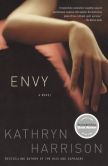 I'm not sure where to begin. With the plot? It is difficult to describe the plot without it sounding convoluted. I’m not saying Envy is convoluted, but that my description of it would it be. It is a complicated story, at the center of which is Will, a man in his mid to late forties. He is married to Carole and father to Samantha and Luke. Will has a nearly identical twin brother, nearly identical because Mitch has a birthmark covering 60 percent of his face. The twins haven't spoken to one another in 15 years and Will isn't sure why that is. There is a lost child, a lost brother, and the possible discovery of a previously unknown a child.
I'm not sure where to begin. With the plot? It is difficult to describe the plot without it sounding convoluted. I’m not saying Envy is convoluted, but that my description of it would it be. It is a complicated story, at the center of which is Will, a man in his mid to late forties. He is married to Carole and father to Samantha and Luke. Will has a nearly identical twin brother, nearly identical because Mitch has a birthmark covering 60 percent of his face. The twins haven't spoken to one another in 15 years and Will isn't sure why that is. There is a lost child, a lost brother, and the possible discovery of a previously unknown a child.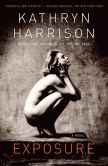
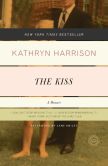
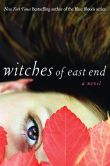 Witches of East End is the first book (excluding the prequel) in a series about three witches living in the small Long Island town of North Hampton. The three witches in question are sisters Freya and Ingrid Beauchamp, and their mother Joanna. For centuries they have lived as ordinary human beings, forbidden from practicing witchcraft. But the day comes when the three Beauchamp women decide to stop concealing who and what they really are. Revealing their true selves has consequences, good and bad.
Witches of East End is the first book (excluding the prequel) in a series about three witches living in the small Long Island town of North Hampton. The three witches in question are sisters Freya and Ingrid Beauchamp, and their mother Joanna. For centuries they have lived as ordinary human beings, forbidden from practicing witchcraft. But the day comes when the three Beauchamp women decide to stop concealing who and what they really are. Revealing their true selves has consequences, good and bad. 